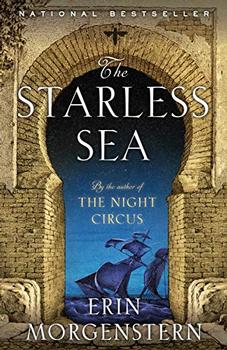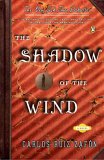Summary | Excerpt | Reviews | Beyond the book | Read-Alikes | Genres & Themes | Author Bio

In the 1920s, Adana Moreau, a Dominican immigrant living in New Orleans, begins writing a gloriously strange science fiction novel titled Lost City. The plot follows a teenage Dominican girl—not too dissimilar from the author herself—who is escaping an apocalyptic world overrun by zombies in search of a golden eternal city set on a parallel Earth. Lost City soon gains cult status thanks to its heady mix of pulpy narrative, philosophical and political enquiry, and avant-garde exploration into parallel world theories. A sequel is greatly anticipated. However, before Adana can finish the follow-up, A Model Earth, she falls terminally ill. In a bid to protect her artistic legacy, or perhaps in a state of feverish delusion, Adana destroys the only existing manuscript in a fire with the help of her young son Maxwell.
Fast forward to the early 2000s, and Saul Drower is left a mysterious package by his recently deceased historian grandfather. Inside he finds a manuscript titled A Model Earth and an attached note instructing him to deliver these papers to Maxwell Moreau, a respected theoretical physicist specializing in parallel universes. In the process of trying to understand who the Moreaus are, Saul finds a copy of Lost City sitting on his grandfather's bookshelf and begins reading. He quickly realizes he has stumbled upon something extraordinary and can't quite believe that Adana Moreau isn't an established figure in the sci-fi world. An online search for the author and her works yields scanty results and no mention whatsoever of A Model Earth. This all raises the question, why would Saul's grandfather possess such a manuscript, and how did he know Maxwell Moreau? Together with his journalist friend Javier, Saul journeys from Chicago to New Orleans in search of Maxwell and answers just as Hurricane Katrina is set to hit the city.
The Lost Book of Adana Moreau is a novel that's positively crammed with stories; there are enough here to fill several books and then some. Much like Maxwell's childhood favorite The Book of the Thousand Nights and a Night, Michael Zapata's luminous novel is set up in a stories-within-a-story framework. Saul's quest for Maxwell is the through line, but along the way there are plenty of captivating digressions and detours.
Within the space of paragraphs, sometimes sentences, Zapata has an uncanny ability to pull you fathoms deep into the fantastical worlds of Lost City and A Model Earth; the backstories of Adana and her pirate husband, who is the last descendant from a long line of African pirates that sailed to the "New World"; Maxwell's mind-boggling theoretical works; Saul's grandfather's so-called historical portraits of well-known figures and events; and a further miscellany of personal histories.
When you rise up for air after each mini-narrative, having just zipped through fully-fledged lifetimes within pages, the effect can be dizzying and breathtaking. And as each tale unfolds, you begin to detect more parallels and echoes across the fictional and factual, the historical and the theoretical. Each story shades the preceding in new colors, not necessarily to offer deeper understanding, but to allow for a richer, more interconnected read.
The common theme that ties these stories together is one of exile and expatriation. Just as Adana's fictional Dominican heroine seeks her golden city, so have many of the "real world" characters escaped hardships in their homelands to find better lives in America. As a result, this is a noticeably cosmo-American novel. Zapata's America is alive with peoples hailing from diverse backgrounds: Caribbean, African, Litvak Jewish, Mexican, Cuban, Romanian and on and on. The very fabric of America, Zapata seems to say, is a rich tapestry of cultures and customs from all over the globe.
Perhaps the inevitable downside to this bottomless treasure chest of people and stories is that sometimes you may wish you could stay put for longer. The constant to-ing and fro-ing doesn't really allow you to form any deep, emotional attachment to the main characters. You may find affinity with a certain narrative only to soon be shooed on to the next, never to return. On a personal note, I would have loved to have spent more time exploring Adana Moreau's fictional Afrofuturist universe, which sits somewhere between the works of Octavia E. Butler, Ursula K. Le Guin and H.P. Lovecraft.
In the end, the answer to Saul's mystery is a surprisingly simple and touching one that drives home how powerful the act of storytelling can be. As Zapata shows again and again, stories offer insight into people's lives; give a voice to history's forgotten; and above all, have the unique ability to connect people from disparate backgrounds, even across generations.
![]() This review was originally published in The BookBrowse Review in April 2020, and has been updated for the
August 2021 edition.
Click here to go to this issue.
This review was originally published in The BookBrowse Review in April 2020, and has been updated for the
August 2021 edition.
Click here to go to this issue.

If you liked The Lost Book of Adana Moreau, try these:

by Erin Morgenstern
Published 2020
From the New York Times bestselling author of The Night Circus, a timeless love story set in a secret underground world - a place of pirates, painters, lovers, liars, and ships that sail upon a starless sea.

by Carlos Ruiz Zafon
Published 2005
The international literary sensation, about a boy's quest through the secrets and shadows of postwar Barcelona for a mysterious author whose book has proved as dangerous to own as it is impossible to forget.
Your guide toexceptional books
BookBrowse seeks out and recommends the best in contemporary fiction and nonfiction—books that not only engage and entertain but also deepen our understanding of ourselves and the world around us.